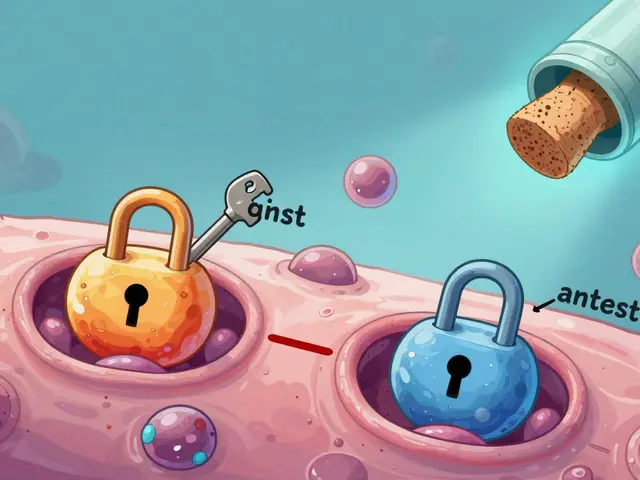PMS: Practical Tips to Feel Better Before Your Period
PMS shows up as a mix of body and mood changes in the week or two before your period. You might get cramps, bloating, breast soreness, headaches, fatigue, trouble sleeping, mood swings, irritability, or food cravings. Symptoms vary — some months they’re mild, other months they hit hard.
Track your pattern. Use a calendar or an app to note symptoms for at least two cycles. Write down what you felt, when it started, how long it lasted, and what made it better or worse. That record helps your doctor and helps you spot triggers like sleep loss, stress, or certain foods.
Simple daily habits help more than you’d think. Aim for regular sleep — go to bed and wake up at the same time. Move your body: 20 to 30 minutes of walking or light cardio most days eases cramps and lifts mood. Cut back on caffeine, alcohol, and salty snacks in the week before your period to reduce tension and bloating. Try to eat steady meals with protein, whole grains, and vegetables; small, regular meals can curb cravings.
For quick symptom relief, try these practical fixes. A heating pad on the lower belly reduces cramps fast. Over-the-counter pain relievers like ibuprofen or naproxen help cramps and headaches if you can take them. For bloating, limit salty and processed foods and drink enough water. Gentle stretching or yoga can ease tension and help sleep.
Quick fixes and supplements
Supplements can help some people. Calcium (around 1,000 mg daily), magnesium (200–400 mg at night), and vitamin B6 (50–100 mg) are commonly used. They don’t work for everyone, and doses matter, so check with a doctor or pharmacist before starting anything new.
If PMS affects your mood a lot, speak up. For severe cases called PMDD (premenstrual dysphoric disorder), symptoms include deep depression, intense anger, or thoughts of harming yourself. Doctors may suggest hormonal options like combined birth control pills or a hormone IUD, or antidepressants called SSRIs for severe mood symptoms. Medication choices depend on your health and plans for pregnancy, so talk it over with a clinician.
Make your appointments useful. Bring your symptom log, a list of medicines and supplements you take, and clear examples of how your life is affected. If tests are needed, your doctor will rule out thyroid problems or anemia that can mimic PMS.
Small changes add up. Track symptoms, tweak sleep and food, use heat and pain relief for bad days, and ask for medical help if mood or daily life suffer. You don’t have to accept monthly misery—there are practical ways to feel better.
When to see a doctor
See a doctor if symptoms stop you from working, studying, or keeping relationships, or if you have severe mood swings or thoughts of harming yourself. Your doctor can offer tests, adjust medications, or refer you for therapy. Cognitive behavioral therapy helps many people with mood symptoms. If your periods are irregular or very heavy, your clinician will check hormones and blood counts. Don’t wait—get help early. You deserve to feel better every month.

Spironolactone for PMS: Can It Help?
As a woman who has experienced PMS, I recently came across Spironolactone as a potential treatment. Spironolactone is a diuretic medication that can help reduce symptoms like bloating and fluid retention. Some women have found relief from PMS-related mood swings and breast tenderness using this medication. However, it's important to consult with a healthcare professional before starting any new treatment. I'm considering discussing Spironolactone with my doctor to see if it could help me manage my PMS symptoms better.
read more




